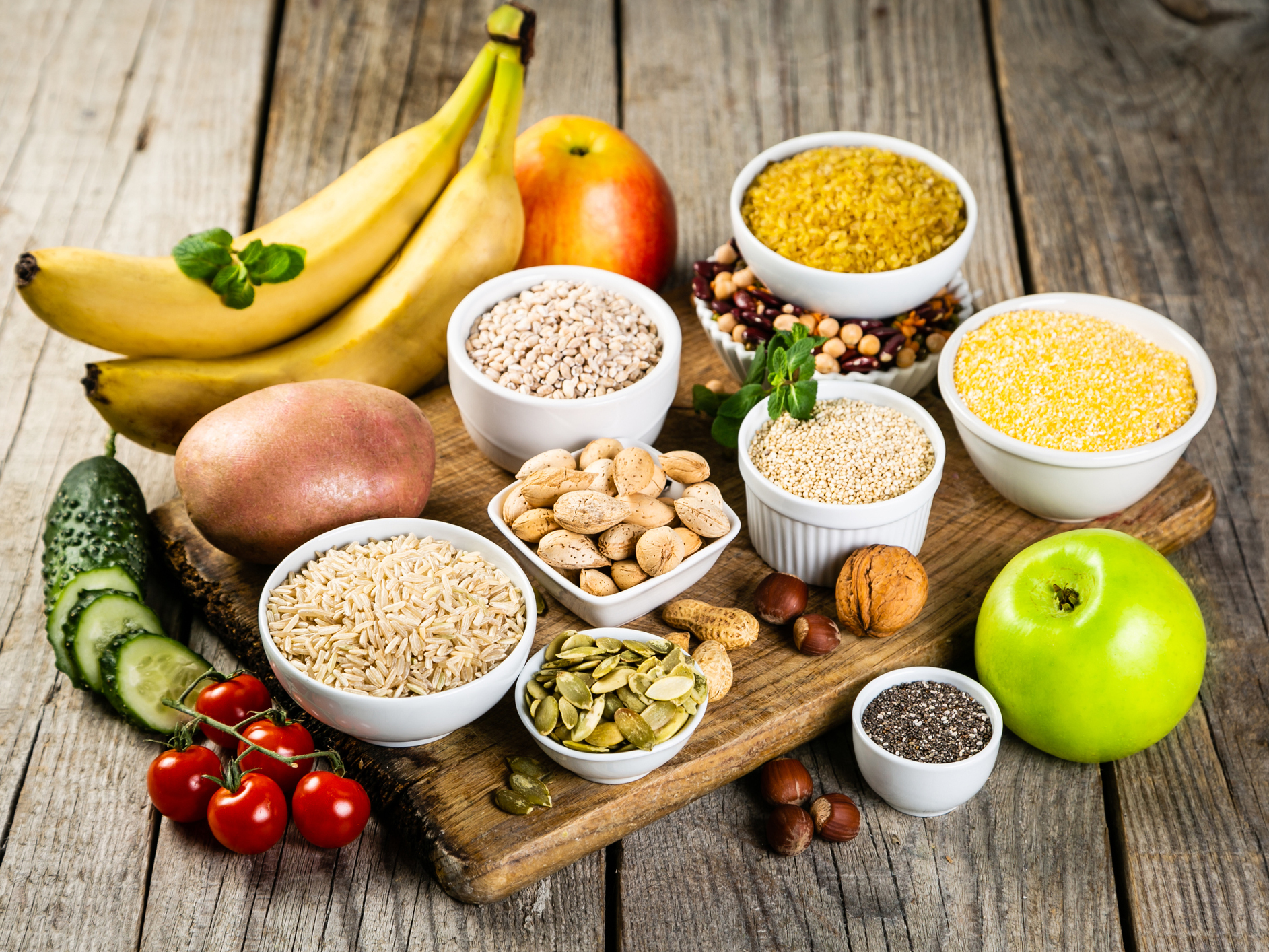Get Easy Health Digest™ in your inbox and don’t miss a thing when you subscribe today. Plus, get the free bonus report, Mother Nature’s Tips, Tricks and Remedies for Cholesterol, Blood Pressure & Blood Sugar as my way of saying welcome to the community!
A cardiologist’s warning about giving up the carbs

As a cardiologist who has always been interested in nutrition, I can tell you that a lot of the confusion about carbs has come from popular diets, self-proclaimed experts, and even doctors trying to simplify things…
It makes for tantalizing headlines, like “Protein is key!” “Butter is back!” “Sugar is evil!” “Carbs make you fat!”
But all that oversimplification has led to many misconceptions — especially when you only look at nutrition panels, and not the source of the nutrients.
Take a look back at this blog post that compared food labels for gummy bears and apples. Based on the nutrition panels alone, many people would balk at the apples. After all, apples have more carbs and sugar and less protein than the candies!
Yet we all know apples are health-promoting and gummy bears are not.
Digging into the carb controversy
Turns out there’s way more to nutrition than can be summarized in a headline or a standardized panel categorizing macronutrients.
Here’s where it gets complicated: Not all carbs are created equal…
Highly processed, simple carbohydrates that have a high glycemic load (like soda, candies, and crackers) digest quickly and speed into your bloodstream as sugar. That triggers a snowball effect: Insulin levels go up and our bodies go into storage mode, which makes us hoard bad cholesterol (causing LDL levels to spike).
Complex, unprocessed carbohydrates (such as oats, flax, chia, and most fruits and vegetables), on the other hand, digest slowly and trickle sugar into the bloodstream thanks to their high fiber content (well over 1 gram fiber per 100 calories, like you get in Step One Foods). That triggers an entirely different effect: Low insulin levels, which lead to lower LDL.
Here’s how folks from the Harvard School of Public Health explain it.
The good news? There is a way to simplify all of this and help you distinguish “good” carbs and sugar from “bad.”
Carbs that do no harm
See, nature is brilliant. It has created perfect whole foods high in the carbohydrates that we need for optimal health. You can consume everything from black beans to oats to blueberries to spinach in almost unlimited quantities without harm.
What you should stay away from are carbs that have been massively modified from their original form, like those gummy bears.
Related: Can this carb curb a creeping waistline?
But don’t be fooled by the advice that anything in a box is “processed” and therefore needs to be avoided. Cooking from scratch is a form of food processing – as is cutting up a tomato – but has little to no effect on the nutritional value of what you’re eating. Rather than focusing on whether it’s in a box, consider what’s in the food — and if your great-grandmother wouldn’t recognize the ingredients in the label, skip it.
Yes, the nutrition panel for our blueberry oatmeal shows 26 grams of carbs and seven grams of sugar, but here’s where those macronutrients come from: whole oats, flax seeds, whole blueberries, cranberries, and Saskatoon berries — and the bare minimum amount of apple juice concentrate needed to keep those blueberries and cranberries soft enough that you can actually chew them. Your great-grandmother would recognize everything that’s in Step One Foods.
And remember, a diet that supports healthy longevity is NOT high in protein or high in fat — it is high in carbs! It includes plenty of sugars that come from fruits and modest amounts of healthy fats that come from plant-based sources. It’s also a diet that eschews animal-based protein. In other words, pretty much the opposite of the latest diet fads.
So, I encourage you to step away from the hype and the false trends and move beyond macronutrients. And follow the dietary advice that has stood the test of time, allows humans to live long well, and is profoundly elegant, simple and sound: Eat real food. Not too much. Mostly plants. If you eat according to this advice, those carbs and sugar — and protein and fat — will all take care of themselves.













